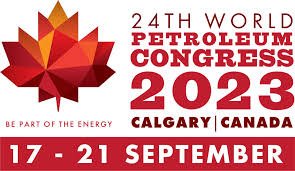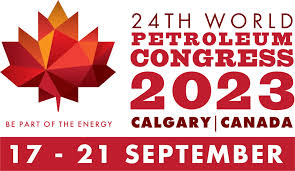Badusi Oyeyemi Elizabeth

The World Petroleum Congress is the premier oil and gas conference in the world and hosts the most senior government and industry leaders in the global energy industry triennially. The program for the 2023 event in Calgary is being managed by WPC Canada, which is the Canadian National Committee of the World Petroleum Council (WPC) organization comprised of Canadian energy professionals.
THEME OF THE 24th WORLD PETROLEUM CONGRESS – Energy Transition – the Path to Net Zero
The 24th World Petroleum Congress in Calgary will welcome an estimated 15,000 visitors, delegates, exhibitors and media from around the world.
About World Petroleum Council Canada
WPC Canada is the Canadian National Committee of the World Petroleum Council (WPC), a nonpolitical, non-governmental organization accredited by the United Nations. WPC Canada has been a member since 1950. WPC Canada is part of an international effort to promote understanding of how the oil and gas sector contributes to sustainable development and improves the lives of people throughout the world.
WPC Canada believes that the petroleum industry must be based on respect for individuals and communities, reliance on the highest technical solutions and business, ethical and government standards, and the creation of value for all stakeholders.
WPC Canada’s focus is on all areas of the petroleum industry, including deep water safety, enhanced oil recovery, carbon capture and storage, biofuels and renewables, oil prices, energy security, climate change, youth and gender, and geopolitics, among others.
About the World Petroleum Congress
The World Petroleum Congress, otherwise known as the “Olympics” of the petroleum industry gathers industry and government leaders from across the world to address all aspects of the industry from technological advances in upstream, midstream, and downstream operations to the role of natural gas and renewables, management of the industry and its social, economic, and environmental impact.
The World Petroleum Congress is led by the World Petroleum Council which is an organization of nearly 65 member countries from around the world. Including both OPEC and Non-OPEC countries with the representation of National Oil Companies (NOCs) as well as International Oil Companies (IOCs). Headquartered in London, since 1933, the World Petroleum Council represents over 96% of global oil and gas production and consumption.


